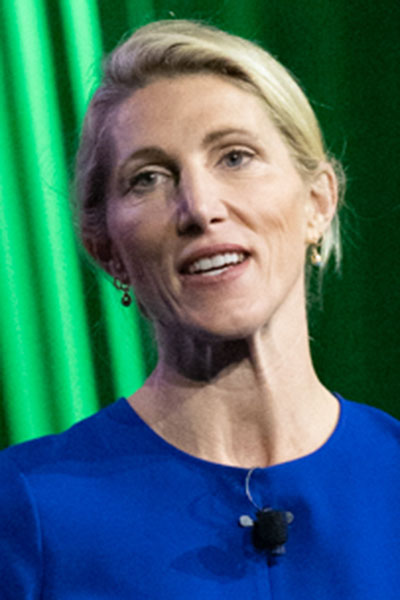
Reducing the damage from climate change is a moral, professional, and public health imperative for clinicians, Vanessa Kerry, MD, MSc, told CHEST 2024 attendees during the keynote address at Sunday’s Opening Session.
“We have a commitment to our patients and the responsibility and the power to leverage our position as one of the most respected professions to influence patient care policy and advocacy,” Dr. Kerry said.
Dr. Kerry is a pulmonary and critical care physician and the Director of Global and Climate Health Policy in the Department of Environmental Health at Harvard T.H. Chan School of Public Health. She is the co-founder and CEO of Seed Global Health, a nonprofit organization focused on strengthening health systems and training the global health workforce. Last year, she was appointed as the World Health Organization’s Special Envoy for Climate Change and Health to advocate for investments to address the growing effects of climate change on the world’s health.
Human emissions of greenhouse gases have led to an average global temperature increase of 1.1 degrees Celsius above pre-industrial levels, Dr. Kerry noted in her address. In 2015, 195 countries signed the Paris Agreement, pledging to keep Earth’s temperature increase this century well below 2 degrees Celsius, with efforts to limit it to 1.5 degrees Celsius. Despite this agreement, temperatures are on track to increase about 2.8 degrees Celsius by the end of the century.
“We’re falling behind, and we’re seeing an acceleration of the impacts of climate change on our health,” Dr. Kerry said. “We have to accelerate our response to how we’re managing this.”
Respiratory and pulmonary health are at the epicenter, she said, since climate change directly impacts air pollution, ozone exposure, and allergens. Extreme weather patterns and events can harm people not only physically but also mentally. The effects are far-reaching, insidious, and difficult to treat—exacerbating inequities, increasing the threat of disease outbreaks, and profoundly altering numerous social, political, and economic determinants of health.
The crux of any response to climate change is mitigation of greenhouse gas emissions, Dr. Kerry said, but we must also adapt and build resilience to mitigate the harm already happening to us.
Clinicians must recognize climate threats and the risks to their workplaces. They can help patients understand personal risks in the changing climate and support them in assessing their work environment and accessing resources to address vulnerabilities.
Health care professionals can optimize care pathways to reduce resource consumption and emissions, including integrating telemedicine when appropriate, investing in prevention, working to improve care outcomes, and streamlining and optimizing testing. One specific example, Dr. Kerry said, is to consider prescribing dry powder inhalers when possible, as metered-dose inhalers release potent hydrocarbon gas.
Another essential way clinicians can help is through advocacy, by educating their community and leaders.
“We can educate using our authoritative and trusted voices,” Dr. Kerry said. “We have an opportunity to help promote better outcomes and better investments, and to advocate for the critical co-benefits in our communities.”
Join us at CHEST 2025
Save the date for the next Annual Meeting, October 19 to 22, 2025, in Chicago. CHEST 2025 will explore the latest advancements in pulmonary, critical care, and sleep medicine, with a focus on innovation and the future, just as the city itself embodies progress and reinvention.





